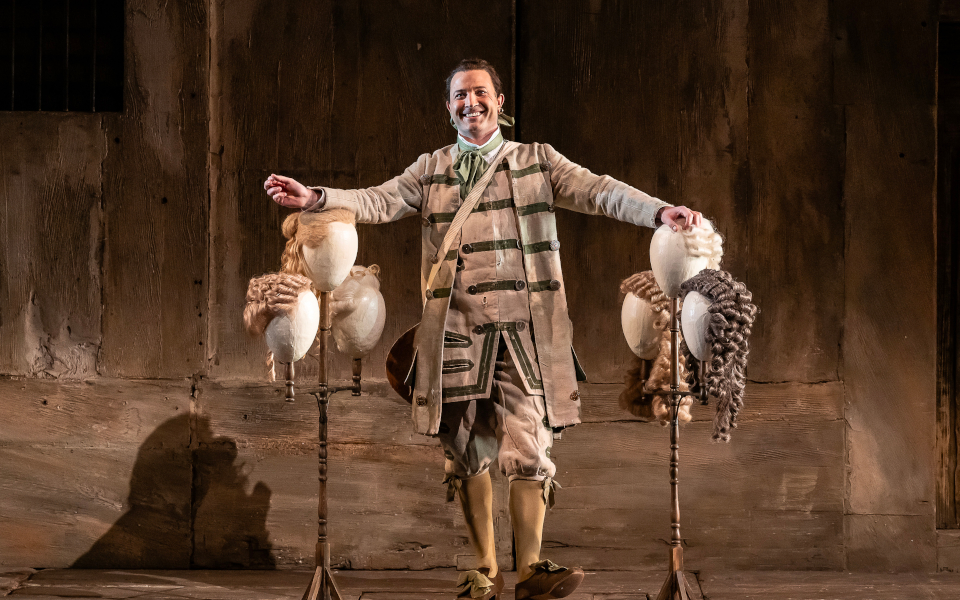The Barber of Seville ENO Review: An enduring delight
The Barber of Seville has a timeless magic: this is the production’s fourteenth revival, yet it still sparkles.


Amid the frenzied activity of the operatic world, it is always refreshing to see a production that has stood the test of time. First performed in 1987, the late Jonathan Miller’s production of Gioachino Rossini’s The Barber of Seville maintains its effortless charm, and, perhaps more importantly, its good humour. Directed by Peter Relton, this is the production’s fourteenth revival, yet it still sparkles with timeless magic.
Based on Pierre Beaumarchais’ play of the same name, The Barber of Seville is infused with the spirit of commedia dell’arte. It is a tale comprising a pair of star-crossed lovers, a succession of disguises, a nefarious guardian, and an audacious barber by the name of Figaro. Enlisting the help of Figaro, the Count of Almaviva wishes to woo the beautiful and quick-witted Rosina, attempting to free her from the clutches of her guardian, the Doctor Bartolo.
Miller’s production leans into the feel of the Italian restoration. The inside of Dr Bartolo’s house, where the majority of the opera takes place, is distinguished by ornate woodwork, and a turquoise grand piano. This glamour is offset by the display of medical equipment and anatomical models, suggestive of the subtle brutality guiding Bartolo’s profession.
While Bartolo’s plan to marry Rosina reveals an icky, odious motive, Simon Bailey’s depiction of him keeps the character from becoming a cartoon villain. Bluffing and blundering his way through Figaro and Almaviva’s thwarting schemes, Bailey’s bass-baritone is awash with comic buoyancy. This light-hearted humour is also reflected in the costumes, which play with comedia dell’arte’s familiar comic types.
Nowhere is this humour more evident, than in the numerous disguises adopted by the Count of Almaviva in his attempt to woo Rosina but it is Innocent Masuku’s command of opera bouffe makes the role a delightful watch. Armed with an unceasing energy, Masuku’s tenor soars with perfect diction, while his characterisation sets the tone for the entire production.
Much the same can be said for Charles Rice’s Figaro. Dripping in impish charm and unparalleled self-confidence, Rice’s Figaro is a joyous schemer, influenced by the harlequin tradition. His baritone is tinged with warmth, even in the opera’s paciest arias. These are kept in check by the ENO orchestra and conductor Roderick Cox. Brimming with vitality, Cox’s direction of the pit makes for some electric moments of musical comedy.
Anna Devin makes for a delightfully coy Rosina. Possessing an unparalleled command of Rossini’s coloratura, her performance accentuates the spirited wittiness of the role. In her hands, Rosina proves to be an easy intellectual match for the Count Almaviva and, undeniably, one that is made in perfect harmony.
If, for whatever reason, your plans for Valentine’s Day were thwarted, this is the ideal evening out to renew your light-hearted and romantic spirit. This production is a true ode to opera’s enduring delight.



